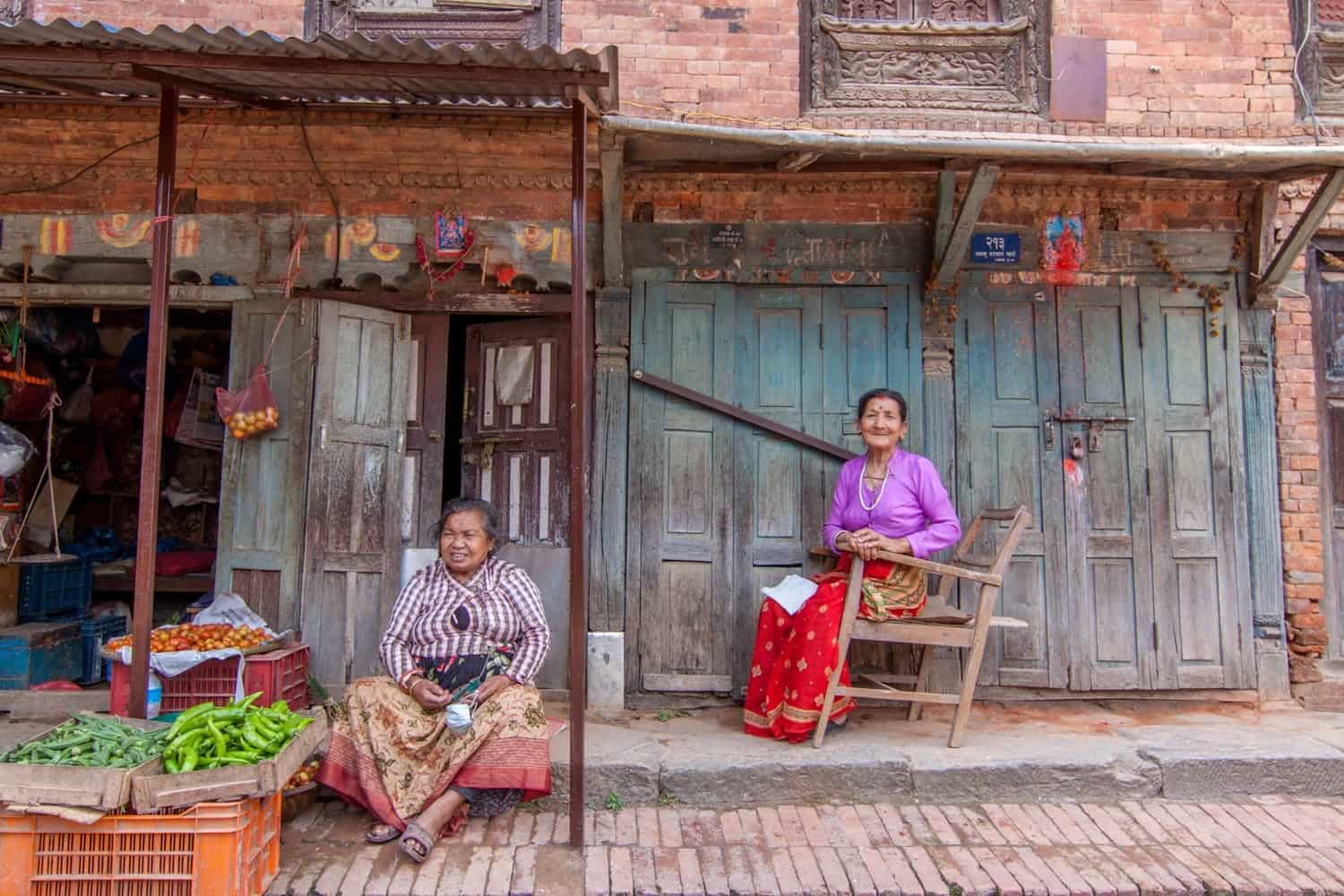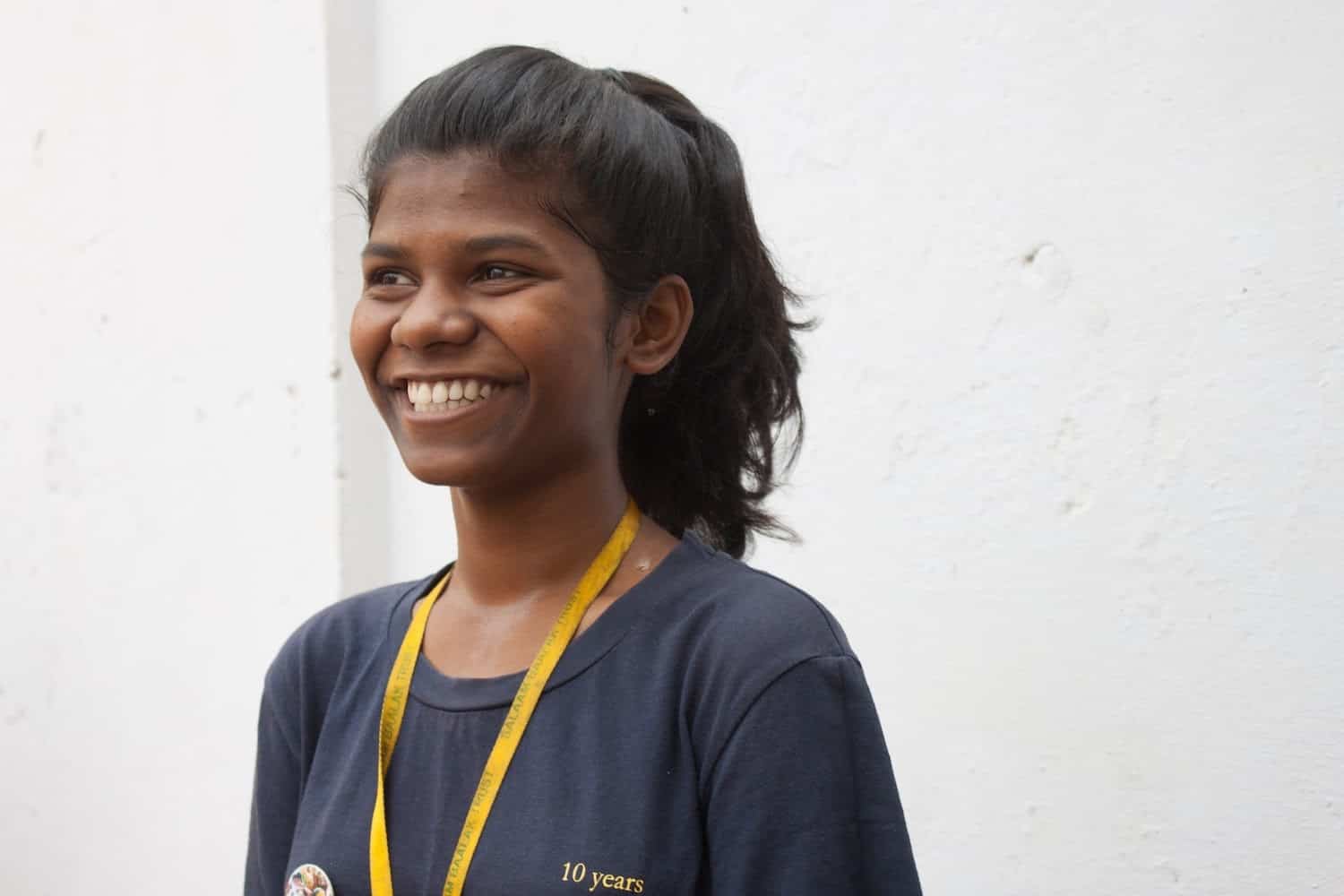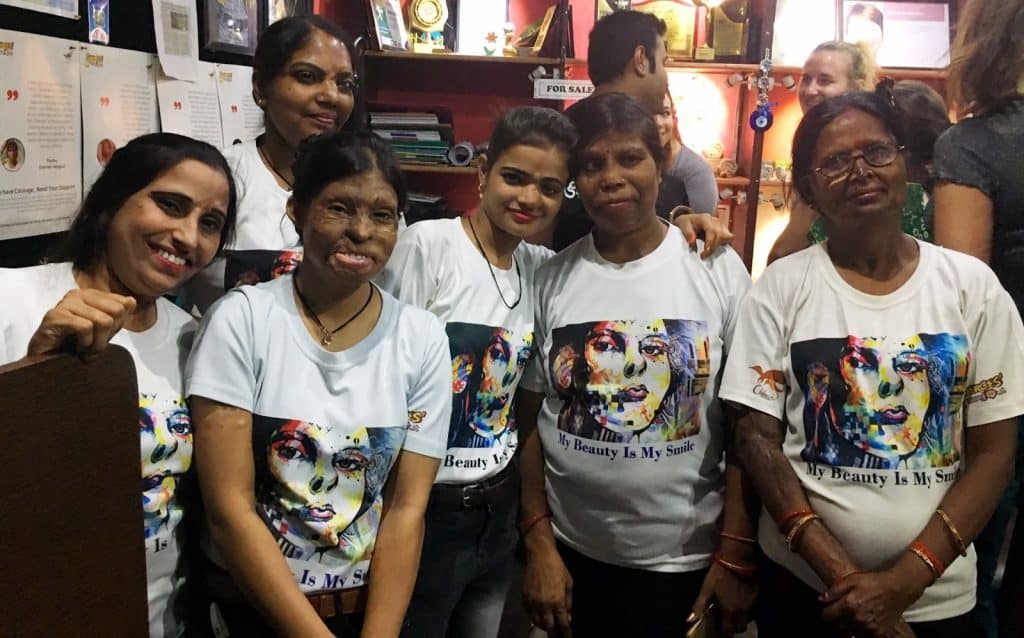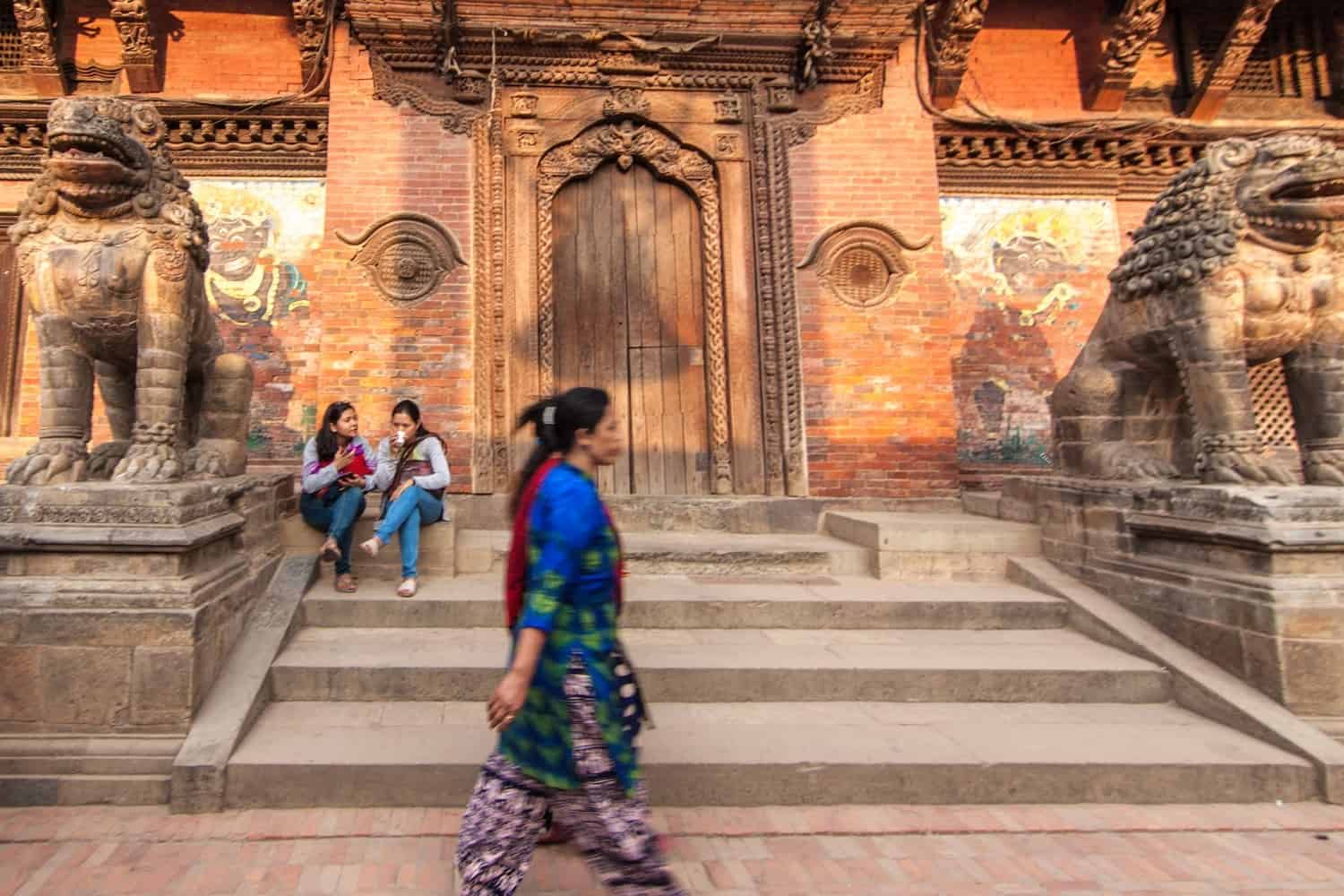The scent of garlic and ginger hung in the air as we sat down for dinner in Sabita’s pink dining room. Steaming before us was a feast of Newari cuisine — sautéed cauliflower, potatoes with okra, paneer dahl, tomato curry, and sel roti “donuts” — traditional of Panauti, Nepal. Our pie-shaped plates, made of leaves stitched with bamboo thread, were empty within minutes.
Sabita is a host with the Community Homestay Network, an initiative to employ women in rural Nepal. On this night, she shared the gift of food and culture with G Adventures travelers from Ireland, Holland, India, and the United States. Between “mmms” of satisfaction, Sabita also shared her story, translated by her 18-year-old daughter, Monika.
Married off at age 14, Sabita depended entirely on her husband until just recently. But thanks to training in hospitality and English, and connecting with travelers and fellow hosts, she now earns her own income that she uses to support and educate her children.
“Now, for the pocket money that we children ask for, she can give it by herself,” Monika translated. “She doesn’t have to wait a whole month for her husband’s income. She’s been helped a lot.”
Responsible tourism and a local business run by women has created a ripple effect across the community.
The homestays have helped the community, too. Travelers who once passed through Panauti are now staying multiple nights, hiring native guides, and buying souvenirs. Hosts like Sabita purchase organic ingredients from local farmers. Community members are taking up old crafts, like making sweaters and sewing coin purses. They’re also relearning traditional dances and instruments such as the dhime. Young people are returning to a village they’re now proud of. Responsible tourism and a local business run by women has created a ripple effect across the community.

Smiling faces greet you along the brick-lined streets of Panauti, Nepal. | Photo by Serena Renner
A year after my memorable meal at Sabita’s house, the world has ground to a halt due to COVID-19. While the slowdown of flights and tours has shown benefits for air pollution, wildlife, and greenhouse gas emissions, it’s hurting remote communities that rely on tourism for survival. In response, G Adventures non-profit partner Planeterra Foundation is raising CAD $50,000 for emergency grants, which it will distribute to the neediest of its 85 social enterprises — projects like Nepal’s homestay network.
Rooted is matching $500 in donations to support this effort.
The travel industry, like every sector of our globalized world, has an opportunity to use this collective pause to examine both the good it delivers as well as the harm it causes. Responsible travel has been identified as a way to help meet several UN Sustainable Development Goals, but a 2018 study published in Nature Climate Change estimates that tourism — including transportation, hotels, dining, and souvenirs — accounts for eight percent of the world’s greenhouse gas emissions. Before the pandemic hit, the International Air Transport Association predicted there would be 7.2 billion air passengers by 2035. Yet, only five to 10 percent of the human population flies in a given year. That’s a significant negative impact caused by very few people.
Before my G Adventures trip through northern India and Nepal, I was losing faith in travel as a force for good. I had seen too many beaches littered with plastic; checked into too many Airbnb properties in foreign cities overtaken by stag parties. I witnessed too many locals treated like servants by white Westerners who didn’t even bother to learn the native words for “thank you.” And I was extremely concerned about climate change, cutting back on my own travel in an attempt to calm my guilty conscience.
But then I met Sabita, and Monika, and Anny, and Indira: women benefiting directly from tourism.
But then I met Sabita, and Monika, and Anny, and Indira: women benefiting directly from tourism. Many of G Adventures’ social enterprises center on female empowerment. Our tour through India and Nepal is one of the leaders, with a Ripple Score of 100 — meaning that all the money spent in the destination goes back into local communities.

Anny used to be one of the 18 million kids who live on the streets of India. Now she guides city tours of Delhi developed by Planeterra for Salaam Baalak Trust. | Photo by Serena Renner
At the back of the bus, during a long drive to the Taj Mahal, G Adventures founder Bruce Poon Tip shared what he believes to be the answer to everything from climate change to poverty: the education of women and girls.
“They’re really the future of solving all these problems. I really believe that,” Poon Tip said. “It’s in the family unit. It’s how they raise their children to be that next generation and how they make decisions for their family.”
Over the course of a week, I came to believe him. We met a young Indian woman named Anny who went from street kid to tour guide thanks to a Delhi City Walk developed by Planeterra. We were driven around by Women on Wheels, a program that trains disadvantaged women to become commercial drivers.
Hidden down the street from the stunning Taj Mahal, we stopped for tea at Sheroes’ Hangout, a café run by survivors of acid attacks. This cruel form of familial abuse is intended to scar appearances and lives forever. But the café, painted in uplifting murals, is the opposite of despair. It gives the women employment, community, and hope. It’s an experience a traveler will never forget.

The survivors behind Sheroes Hangout are fighting to protect other women from acid attacks by pushing the government to ban the sale of acid and increase the minimum sentence for perpetrators. | Photo by Serena Renner
In Nepal, we learned another disturbing truth: The country is one of the epicenters of human trafficking. Two-thirds of trafficking is the exploitation of women and girls, and the practice has increased since the 2015 earthquake.
Enter Sasane, a survivor-led organization that translates to “let’s protect ourselves.” The non-governmental organization trains survivors to become paralegals and trekking guides who work on the front lines for other victims. Through the Sisterhood of Survivors program, developed by Planeterra, the “sisters” also teach travelers to make traditional momos (dumplings) in exchange for hospitality training and revenue.
When the world opens up again, let’s travel less, but travel better.
“Many travelers come to see Mount Everest, but at the bottom of the mountains, we have problems,” said Sasane co-founder Indira Guru, after a savory thali lunch. “So, when travelers come to visit our village, it helps sustain lives.”
While we’re grounded at home — away from the foods, customs, and people we love — let’s remember what kind of travel enriches lives and communities. And when the world opens up again, let’s travel less, but travel better.


